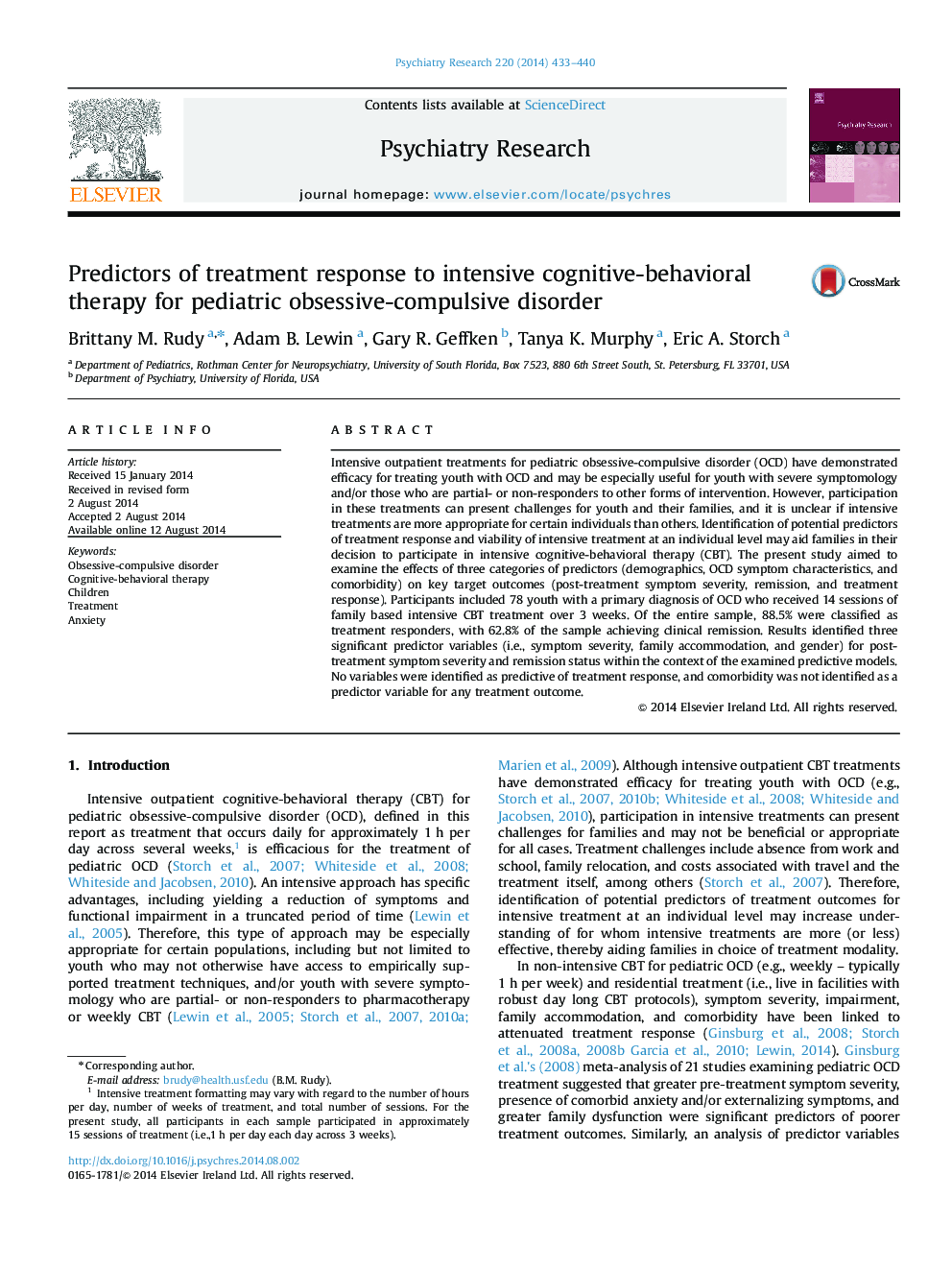| Article ID | Journal | Published Year | Pages | File Type |
|---|---|---|---|---|
| 6814957 | Psychiatry Research | 2014 | 8 Pages |
Abstract
Intensive outpatient treatments for pediatric obsessive-compulsive disorder (OCD) have demonstrated efficacy for treating youth with OCD and may be especially useful for youth with severe symptomology and/or those who are partial- or non-responders to other forms of intervention. However, participation in these treatments can present challenges for youth and their families, and it is unclear if intensive treatments are more appropriate for certain individuals than others. Identification of potential predictors of treatment response and viability of intensive treatment at an individual level may aid families in their decision to participate in intensive cognitive-behavioral therapy (CBT). The present study aimed to examine the effects of three categories of predictors (demographics, OCD symptom characteristics, and comorbidity) on key target outcomes (post-treatment symptom severity, remission, and treatment response). Participants included 78 youth with a primary diagnosis of OCD who received 14 sessions of family based intensive CBT treatment over 3 weeks. Of the entire sample, 88.5% were classified as treatment responders, with 62.8% of the sample achieving clinical remission. Results identified three significant predictor variables (i.e., symptom severity, family accommodation, and gender) for post-treatment symptom severity and remission status within the context of the examined predictive models. No variables were identified as predictive of treatment response, and comorbidity was not identified as a predictor variable for any treatment outcome.
Related Topics
Life Sciences
Neuroscience
Biological Psychiatry
Authors
Brittany M. Rudy, Adam B. Lewin, Gary R. Geffken, Tanya K. Murphy, Eric A. Storch,
